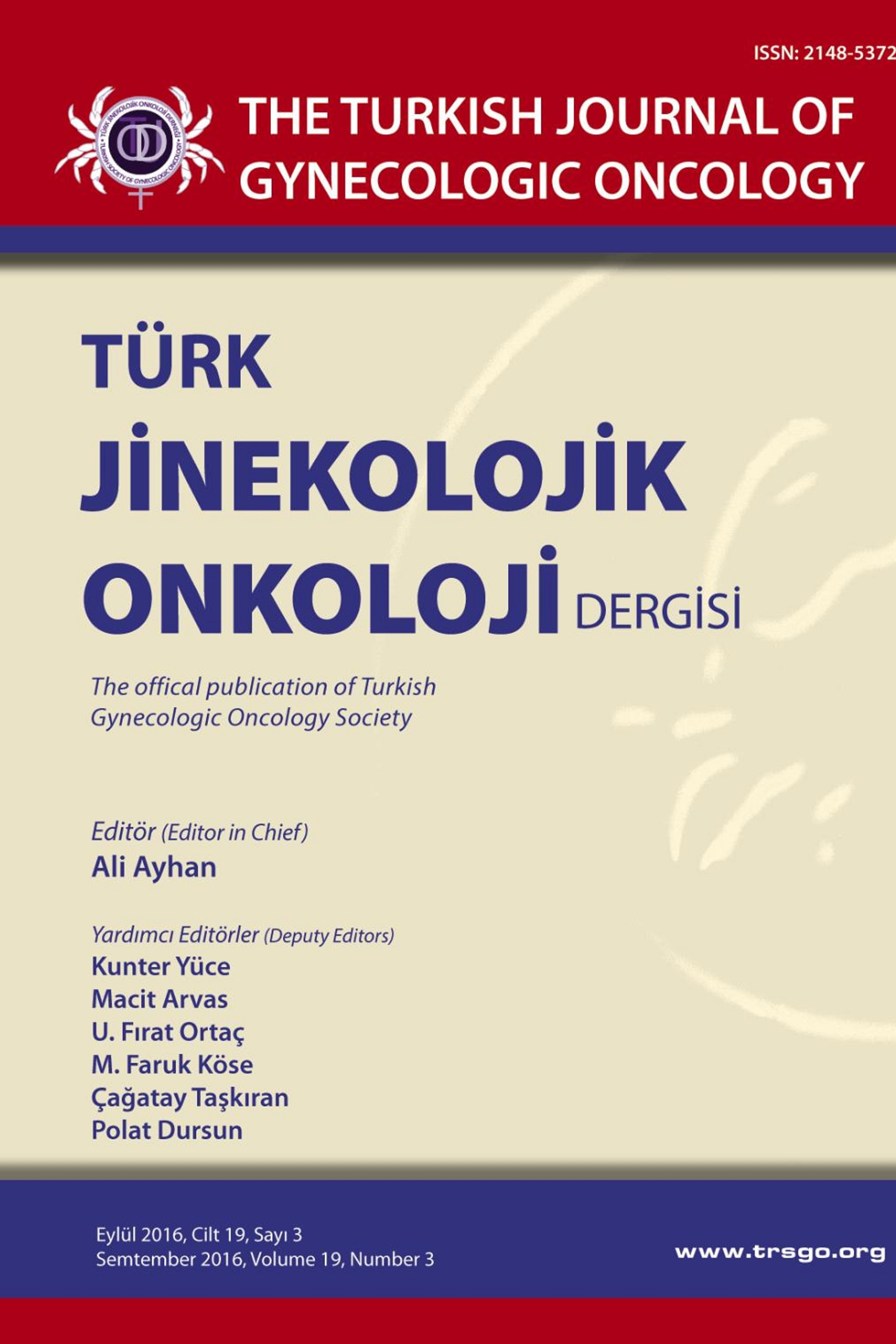OVER KANSERİ YÖNETİMİNDE BARSAK CERRAHİSİ
Giriş: Over kanseri olgularında, birçok seride primer optimal kitle küçültücü cerrahi en önemli anlamlı prediktör olduğundan, daha iyi sağkalım elde etmek amacıyla tümör yükünü azaltmak için barsak rezeksiyonu da dahil olmak üzere agresif yaklaşım gerekebilir. Bu nedenle, standart over ve peritoneal kanser cerrahi tedavisi sırasında barsak cerrahisinin etkisini değerlendirmeyi amaçladık. Materyal ve Method: Retrospektif olarak gerçekleştirilen bu çalışmada over kanseri veya peritoneal kanser nedeniyle opere edilen hastalar değerlendirilmiştir. Veriler hastaların dosyalarından, cerrahi ve patolojik bulgu kayıtlarından elde edilmiştir. Çalışmaya standard over kanseri cerrahisi sırasında küçük perforasyonlar veya serozal defektler nedeniyle primer onarım yapılan olgular hariç barsak cerrahisi uygulanan olgular dahil edilmiştir. Sonuçlar: Çalışmaya 36 hasta dahil edilmiştir. Otuz hastada primer, 6 hastada ise sekonder kitle küçültücü cerrahi sırasında barsak cerrahisi uygulanmıştır. Yapılan operasyon tipleri total kolektomi, subtotal kolektomi, sağ veya sol hemikolektomi, transvers kolon rezeksiyonu, sigmoid rezeksiyonu, rektum rezeksiyonu, ileokolik rezeksiyon ve ince barsak rezeksiyonu olarak gruplandırıldı. Sadece bir hasta barsak cerrahisi ile ilişkilendirilen komplikasyonlar nedeniyle öldü. Bir başka hastada insizyonda enfeksiyon ve eviserasyon gelişti ve yeniden opere edildi. Tartışma: Primer sitoredüktif cerrahi sırasında yapılan barsak cerrahisi optimal kitle küçültücü operasyonların önemli bir parçasıdır ve perioperatif morbidite ve mortalitesi kabul edilebilir sınırlardadır.
Objective: As primary optimal surgical debulking is the most significant predictor of survival in many series, agressive effort, including bowel resection, may be required to reduce tumor burden for improved survival benefits. We aimed to evaluate the impact of bowel surgery during standard ovarian and primary peritoneum cancer surgery. Materials and Methods: In this retrospective study we evaluated the patients operated for ovarian cancer or peritoneum cancer. Data were gathered from patients' files, surgical and pathological recordings. The patients who had bowel surgery besides standard surgery for ovarian cancer were included in the study, except primary repair for small perforations or serosal defects. Results: A total of 36 patients were included in the study. Thirty patients had primary and 6 had secondary debulking surgery for ovarian cancer. Bowel surgeries performed included total colectomy, subtotal colectomy, right or left hemocolectomy, lef hemicolectomy, transverse colon resection, sigmoid resection, rectum resection, ileocolic resection and small bowel resection. Only one patient died with complications attributable to bowel surgery. Another patient had infection of incision and evisceration and reoperated. Discussion: Bowel resection at the time of primary cytoreductive surgery is a crucial part of optimal debulking and associated with acceptable perioperative morbidity and mortality.
